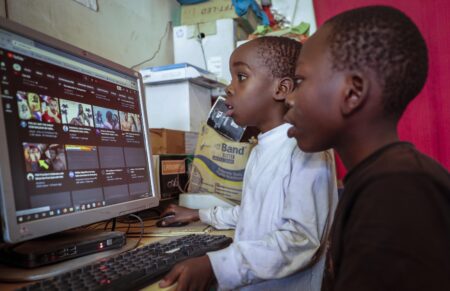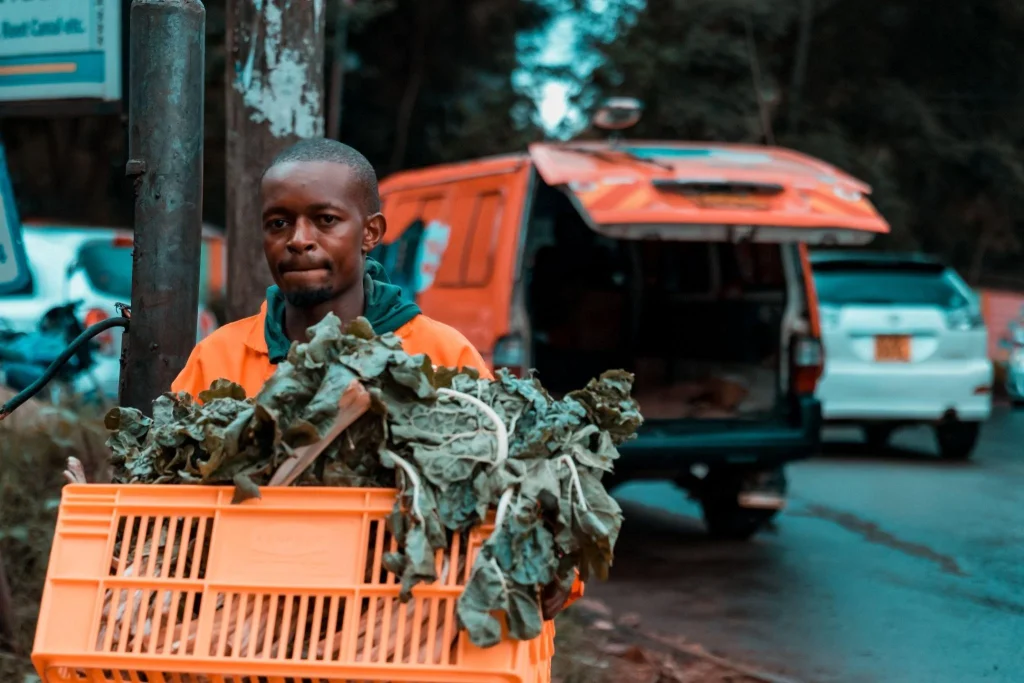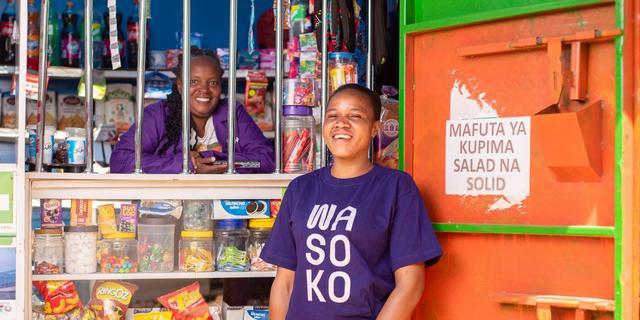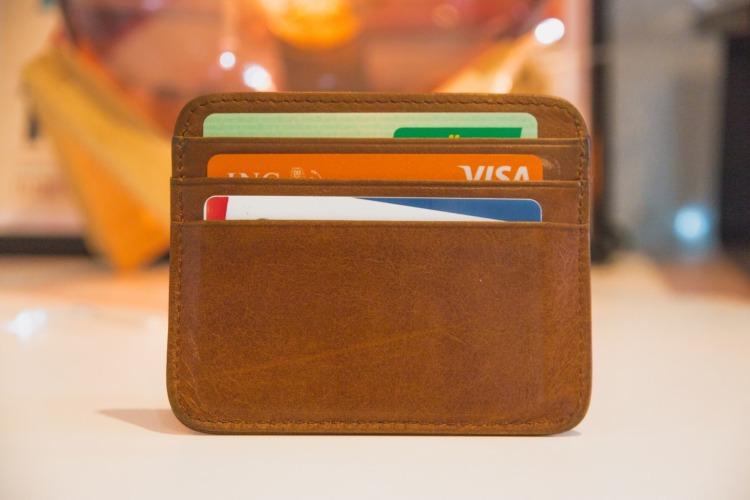- Africa’s new dawn: the rising role of digital and AI in agriculture
- Can Dangote Refinery Transform Africa Energy Ambition
- Gallup Survey: 80 per cent of Kenyan Workers Are Disengaged and Seek New Opportunities
- Madagascar Man Freed from 5KG Tumor After 15-Year Struggle
- How women in Africa are perceived and treated
- Sugar consumption in Kenya to Increase to 1.23 Million Tonnes
- Can Somalia and Turkey Oil deal Bring Change in Somaliland
- Remittances to Kenya dropped to $371.6 million in June, marking a six month low
Browsing: e-commerce
- Market size of Africa’s digital economy could reach $712 billion by 2050.
- In 2022 only 36 percent of the African population had access to broadband internet.
- Mobile Network Operators (MNOs) are streamlining adoption of 5G services.
Africa is on the verge of an economic revolution. From the north to the southern part of the Saharan desert, nations are striving to eliminate poverty and gain a strong foothold in global markets.
In the same vein, the continent is banking on the potential held by the digital economy. Reports ping the sector to higher standards, including a report from non-profit Endeavor predicting that the market size of Africa’s digital economy could reach $712 billion by 2050.
The growth is propelled by the massive engagement of the continent’s younger population, rising smartphone adoption and increasing internet penetration.
Read also: World Bank backs Smart Africa’s Digital Academy with $20M grant
Digital economy in
…- Africa’s agribusiness sector is undergoing significant transformations driven by population growth, urbanisation, technological advancements, and shifting consumer preferences.
- Alongside their role in stimulating economic growth, agribusiness and agro-industrial development have the potential to reduce poverty and foster social and economic growth.
- Technological advancements and digital transformations are revolutionising agribusiness in Africa, offering transformative opportunities.
Africa’s agribusiness sector potential
Agribusiness in Africa is undergoing significant transformations driven by population growth, urbanisation, technological advancements, and shifting consumer preferences. As a continent with abundant agricultural resources, Africa holds immense potential for agribusiness development.
African economic growth remains commodity-based, mainly on commodity exports, with minimal processing and value addition involved. To foster sustainable and inclusive growth and development in Africa, there is an urgent need to promote a new development approach based on exploiting the continent’s full agribusiness potential.
Some pressing issues call for a reorientation to support agribusiness and agro-industrial development, namely, poverty …
Africa has today emerged as a fertile ground for groundbreaking startups. As 2024 approaches, the continent’s startup scene is buzzing with activity, marked by impressive funding rounds and strategic expansions. This trend is a fleeting moment and a testament to African entrepreneurship’s resilient and dynamic spirit.
The Exchange Africa spotlights five startups thriving and redefining the business landscape in their respective sectors. From renewable energy solutions in the Democratic Republic of Congo to digital health platforms in Kenya, these companies embody the ingenuity and potential of Africa’s business ecosystem. They attract significant investment and are poised to substantially impact their communities.…
Today, being an online trader or digital shopper only requires one to have a smartphone, internet connection, a convenient social media platform and some products to sell or to buy.
One of the major hindrances to e-commerce across the world is inadequate online payment systems. In Kenya, however, mobile payment platforms have placed the East African nation at the top of other global economies. For this and many other reasons, Kenya is ranked third in Africa after Nigeria and South Africa, in terms of online shopping volumes, according to an article published in the Daily Nation last year.
All said and done, while you enjoy the convenience of online shopping, doing so comes with risks that can frustrate the modern way of shopping, leaving consumers and dealers vulnerable to the antics of online criminals.…
This and other challenges including unpredictable prices of farm produce and a lack of working capital often plague small restaurants and food vendors across the continent.
This is what largely drove the creation of TopUp Mama- Former Kibanda TopUp- in Kenya.
The firm launched in February 2021 in Nairobi and has reported significant growth over the past year since its inception.
Founded by Njavwa Mutambo, Emilie Blauwhoff and Andrew Kibe, the startup has grown 10-fold in just over a year with more than 3,000 merchants (1,000 active) using its platform to make orders every month.…
- Social commerce may seem like a more foreign concept but it is widely used across Africa
- Online shopping has gained more popularity during the Covid-19 crisis, turning social networking platforms like Facebook and Instagram into business tools
- Social commerce- which is abbreviated as s-commerce- represents the integration of shopping and social media
When the Covid-19 pandemic hit back in 2019, a majority of individuals were forced to turn to social media platforms in search of goods and services.
While most people view this as the growth of e-commerce across the globe, it also gave rise to the growth of social commerce.
Social commerce may seem like a more foreign concept but it is widely used across Africa.
Online shopping has gained more popularity during the Covid-19 crisis, turning social networking platforms like Facebook and Instagram into business tools.
Social commerce- which is abbreviated as s-commerce- represents the integration of …
“Sokowatch started as this kind of backend brand. We wanted a brand that could be more front and centre for the African retailer and easily pronounced across all markets while reflecting our East African roots. So that’s why we’ve rebranded now to Wasoko, meaning ‘people of the market,” Yu said.
The seven-year-old company said this round of funding will go towards exploring expansion into Nigeria as well as Southern Africa while consolidating its position across its six current markets.
It will also make hires and expand its product offerings to point-of-sale merchant systems, bill payments and social commerce, verticals it might build in-house or back and acquire companies that provide such services.
The company also offers a buy now, pay later option for retailers who need working capital to order more goods. Buy now, pay later offerings are the latest trend for B2B retail and e-commerce companies. They see it …
The lockdown occasioned by the coronavirus pandemic saw new e-commerce users rise by 5 percent in Sub-Saharan Africa in 2020 when compared to the active base the previous year.
This is according to a report by VISA, which attributes this to a preference of e-commerce to fill the void left by the closure of face-to-face retail, which was implemented across many parts of the world, including the region, to fight the viral disease.
The ‘e-commerce developments across Su-Saharan Africa’ report also notes the economic shocks that followed COVID-19 have reduced spending power across the world, including in the region, but the closure of physical stores has provided a growth opportunity for digital payments and e-commerce itself.
Where, how to invest in Uganda’s e-commerce
As such, VISA projects that e-commerce sales will grow to US$7 trillion across the globe by 2024, with the Asia Pacific, specifically, China, India, and Southeast Asia, …
These days, technology has changed our life, how we respond to everything including how we buy and sell products and services. Fewer clicks on our smartphones or computers now and we can book a cab, a hotel room, a cinema ticket, buy salt, pizza, groceries and a lot of other products and services.
To do so, we often download apps or go to certain web platforms, create accounts by providing personal information and agree to the terms and conditions. We are then able to buy the products and services we are looking for.
When on the platform, done selecting the products or services we wanted, right before paying, we are most of the time requested to confirm that we agree to the “terms and conditions” or “terms of use” or “terms of service” of the platform. By clicking that we agree, we thus enter into a binding sale contract.
I …
Rising income levels among all socioeconomic classes are seeing an increase in the demand for goods and services and firms should consider introducing their products to the continent since there are lucrative investment, production, and distribution opportunities all over Africa.
According to Brookings Institute, the sectors to look out for and invest in include the Fast-Moving Consumer Goods (FMCG), online retail and luxury goods.…














